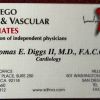Recognizing the Early Signs of a Heart Attack: What You Need to Know
- What Are the Early Signs of a Heart Attack?
- Common Symptoms to Watch For
- Lesser-Known Warning Signs
- A Personal Story: When I Ignored the Warning Signs
- What to Do If You Experience These Symptoms
Understanding the early signs of a heart attack is crucial because it can mean the difference between life and death. I know from personal experience how scary it can be to face a potential heart problem, but it’s important to stay calm and recognize what’s happening. The earlier you act, the better your chances of survival and a full recovery.
Most people think of a heart attack as something sudden and severe, like what you see in movies, but in reality, there are often early signs that can warn you before a full-blown event occurs. These early warning signs may be subtle and easy to miss, but recognizing them is vital for your health.
Common Symptoms to Watch For
The most well-known sign of a heart attack is chest pain, but it’s not always the first symptom you’ll experience. In fact, chest discomfort or pressure is just one of the many signs. Let’s dive deeper into the most common symptoms of a heart attack that you should watch for:
- Chest Pain or Discomfort: This is the classic symptom that most people associate with a heart attack. It can feel like a heavy weight on your chest, or you may feel tightness, squeezing, or a burning sensation.
- Shortness of Breath: If you find yourself struggling to catch your breath without any obvious reason, this could be a sign of a heart attack. It may occur before or along with chest pain.
- Pain in the Upper Body: Pain or discomfort in the arms, back, neck, jaw, or stomach is often a sign that the heart is in distress. The pain may come and go or feel like a dull ache.
- Cold Sweat: Sweating excessively, especially when you’re not engaged in any physical activity, is another symptom that should not be ignored. This can happen alongside other symptoms.
Lesser-Known Warning Signs
While the symptoms mentioned above are the most commonly recognized, there are also some lesser-known warning signs of a heart attack. It’s important to know that heart attacks don’t always present in the same way, especially for women. These subtle signs can easily be overlooked, but they are just as important:
- Fatigue or Weakness: Feeling unusually tired or weak, especially when doing everyday activities, can be a precursor to a heart attack. This symptom may appear several days before other symptoms show up.
- Lightheadedness or Nausea: Some people experience nausea or lightheadedness, which can be mistaken for indigestion. This symptom is more common in women, but it can affect anyone.
- Indigestion or Heartburn: While heartburn is common, unexplained indigestion, especially if it comes on suddenly and doesn’t improve with antacids, should be checked out. It may signal that something more serious is going on with your heart.
A Personal Story: When I Ignored the Warning Signs
I want to share a story from my own life to emphasize how important it is to listen to your body. A few years ago, I started feeling unusually tired and had some mild chest discomfort. At first, I brushed it off, thinking it was just stress or fatigue from work. But then, the symptoms started to escalate – I felt lightheaded, and one day, I experienced a sharp pain in my chest.
Fortunately, I recognized these signs as potentially serious and called my doctor. After several tests, it turned out that I had early signs of a heart attack, but thanks to acting quickly, I received treatment and made a full recovery. I learned the hard way that it’s essential not to ignore symptoms, no matter how minor they seem. It saved my life, and I hope my story can help others recognize the importance of early intervention.
What to Do If You Experience These Symptoms
If you recognize any of the early signs of a heart attack, it’s essential to take immediate action. The quicker you respond, the better your chances of survival. Here’s what you should do if you suspect you're experiencing a heart attack:
- Call Emergency Services: If you experience chest pain, shortness of breath, or any other signs of a heart attack, don't wait to see if it goes away. Call 911 immediately.
- Stay Calm: Try to stay calm and rest while waiting for help. Anxiety can worsen the situation, so try to take deep breaths and remain as relaxed as possible.
- Chew Aspirin: If you’re not allergic to aspirin and you’re not experiencing bleeding, chew an aspirin. This can help reduce the severity of the heart attack by thinning the blood and improving circulation until help arrives.
Acting quickly in response to the early signs of a heart attack is critical. Don’t delay, and don’t ignore the symptoms. Your life may depend on it.
If you are concerned about your heart health or would like to take steps to protect yourself, check out our website Healthy Heart, where we offer helpful resources and products designed to support cardiovascular health.




















